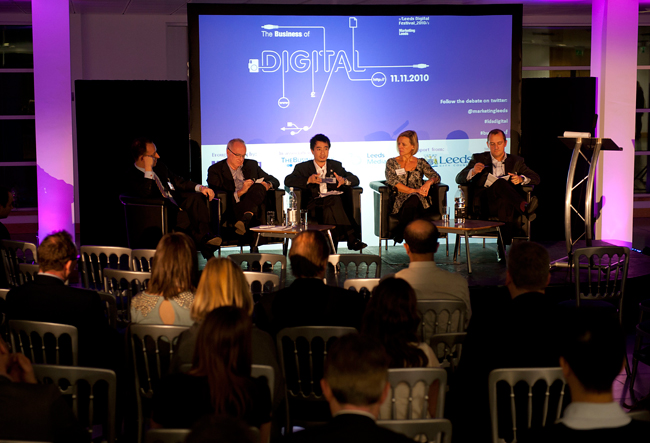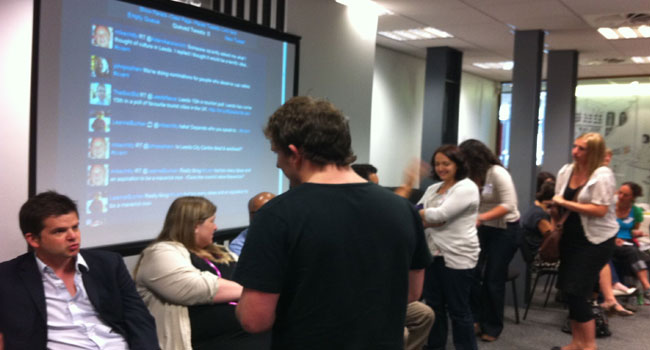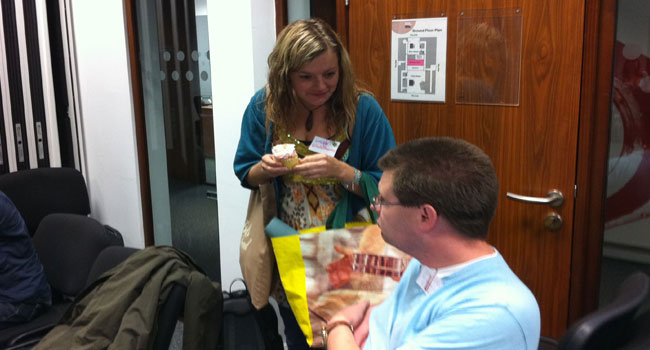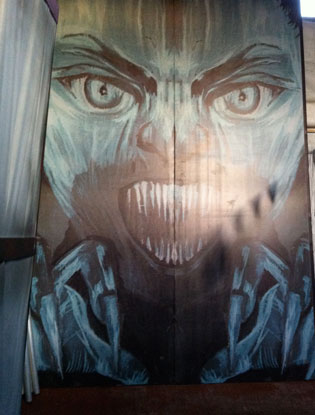The Business of Digital
 Thursday, November 18, 2010 at 1:12PM
Thursday, November 18, 2010 at 1:12PM In the second of our Leeds Digital Festival posts we look back at The Business of Digital event presented by Marketing Leeds. The event brought together leading thinkers from various industries to debate questions put forward by the audience and through Twitter.
The event had a very different feel to the previous evening's TEDxLeeds event, but in the same way TED did, provided some excellent content and insight from the panelists. On the panel sat Dr Norman Lewis of Open-Knowledge, Amanda Brown of First Direct, Kieron Matthews of The Internet Advertising Bureau, Daniel Pollick of DLA Piper and Buddy Ye of Shune River Media, who we had talked to the previous day here. The discussion was chaired by David Parkin - Editor of The Business Desk.
The panel discussed a range of issues from the typical 'What is the next big trend' stuff to perhaps the more interesting subject of what digital means to young people, or indeed if the term "digital" even exists in conversations between young people. Some comments that really caught my attention were
"If you call a digital camera a digital camera and not just a camera, you are probably not a digital native"
"Young people used MySpace as a way to connect with their friends without their parents supervision, it was the meeting place where young people could talk and build their own personality in the same way we used to dress like the Beatles or the Rolling Stones to show ours"
"I have a 27 year old employee who has never read a printed newspaper, only online content"
These types of statements really illustrate the point well that things have changed with the next generation of consumer. They do not think about online or digital as being different to traditional media because websites, blogs, apps are their traditional media!
'Mobile' was a subject discussed at length and as Buddy and I had discussed the previous day: is the area that every major brand is thinking about. The stats are even more startling in China, but a global trend is emerging that people are consuming more and more 'media on the move' and devices such as the iPhone, iPad have really helped to speed up this trend in the west. The panel agreed that mobile technology is changing communications and the way consumers interact with media content.
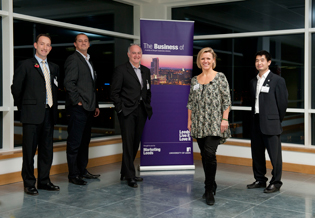
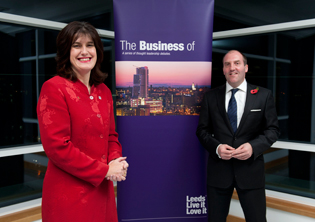
There were certain points the panel disagreed on such as Facebook. Dr Norman Lewis said adults were behaving like children trying to 'win a popularity contest' on the social network. Kieron Matthews disagreed saying that the older generation are using the network to stay in touch with friends and share family photos. I think there is some truth in both of these points of view: Some people think it is a popularity contest but also lots of people use Facebook instead of email and the photo-sharing is a massive reason for being on the network. Of course the fact that a Facebook App is much easy to access then a lot of email systems for mobile has helped this trend also.
I really enjoyed the evening and speaking with a couple of people after the event it seemed that this discussion could of really opened up some eyes in the city to the potential of using digital and social media to help their companies / brands internally and externally. Sometimes it takes an organisation like Marketing Leeds to create this type of event in order to attract some of the more 'traditional' business leaders who may not attend some of the other more technical or creative events that take place in the city.
A job well done to everyone.
 Digital,
Digital,  Leeds in
Leeds in  Hebe Features,
Hebe Features,  Hebe Leeds
Hebe Leeds 



